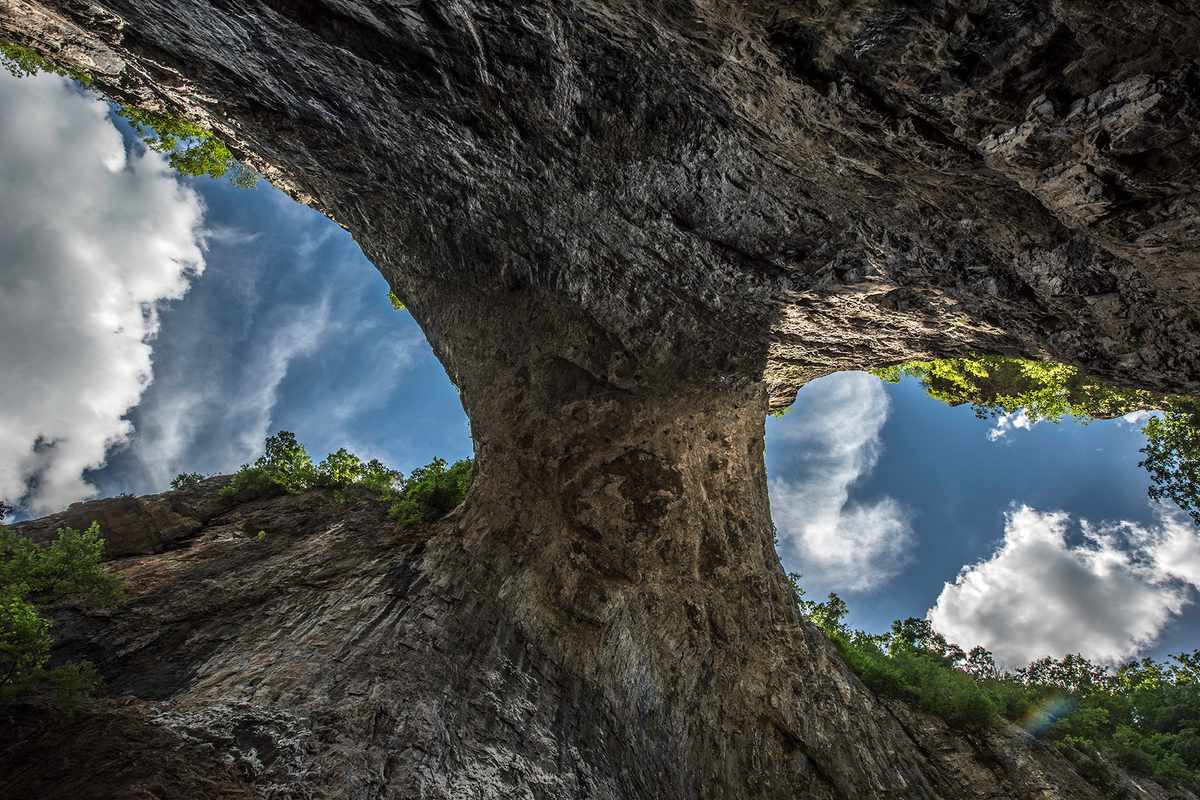
Virginia may already be for lovers, but it turns out it's an excellent place for stargazers, too.
In April, the International Dark Sky Association awarded two parks in Virginia, Natural Bridge State Park and Sky Meadows State Park, with the coveted International Dark Sky Park status. This means there are now five different places travelers can go to in Virginia to get a glimpse of the dazzling night sky.
"With the designation of Natural Bridge and Sky Meadows, Virginia State Parks has a total of four dark sky parks and Virginia has a total of five, more than any other state east of the Mississippi," Virginia State Parks director Dr. Melissa Baker said in a statement. These parks now join James River State Park, which gained its Dark Sky designation in 2019, and Staunton River, which gained its status in 2015. "The designation represents years of hard work and dedication by the staff and volunteers at both parks. Our commitment to providing visitors with unique opportunities to enjoy and learn about our natural resources is at the forefront of this project."
And truly, gaining this designation is no easy feat. As the International Dark Sky Association explains, the process typically begins with a group of volunteers who rally together to protect these dark spaces.
Next, the association certifies the area in a process it says is modeled on other conservation and environmental designation programs (like UNESCO World Heritage Sites).
"The International Dark-Sky Association does not select International Dark Sky Places, but rather a site is nominated by a group or individual with a comprehensive application," the association shares on its site. "There are five categories for designation within the IDSP Program: International Dark Sky Parks, Communities, Reserves, Sanctuaries, and Urban Night Sky Places. Each category has its own set of guidelines based on land management, size, and sky quality."
Parks can be public or private land to qualify, but they must be accessible to the public in part or whole. Areas must also be "legally protected for scientific, natural, educational, cultural, heritage and/or public enjoyment purposes." The area must also provide an "exceptional dark sky resource" relative to the communities and cities surrounding it. The night sky brightness must typically be equal to or darker than 21.2 magnitudes per square arc second. So yeah, it's rather specific and volunteers who submit for dark sky status certainly have their work cut out for them.
"I hope that all of Virginia's Dark Sky Parks will inspire their surrounding communities to make responsible, quality outdoor lighting a priority so that Virginia can halt and reverse the decades' long trend of growing light pollution," Laura Greenleaf, volunteer representative for Virginia, said in a statement.
Want even more places to explore? See more on Virginia's Dark Sky parks here.
Source: Read Full Article











